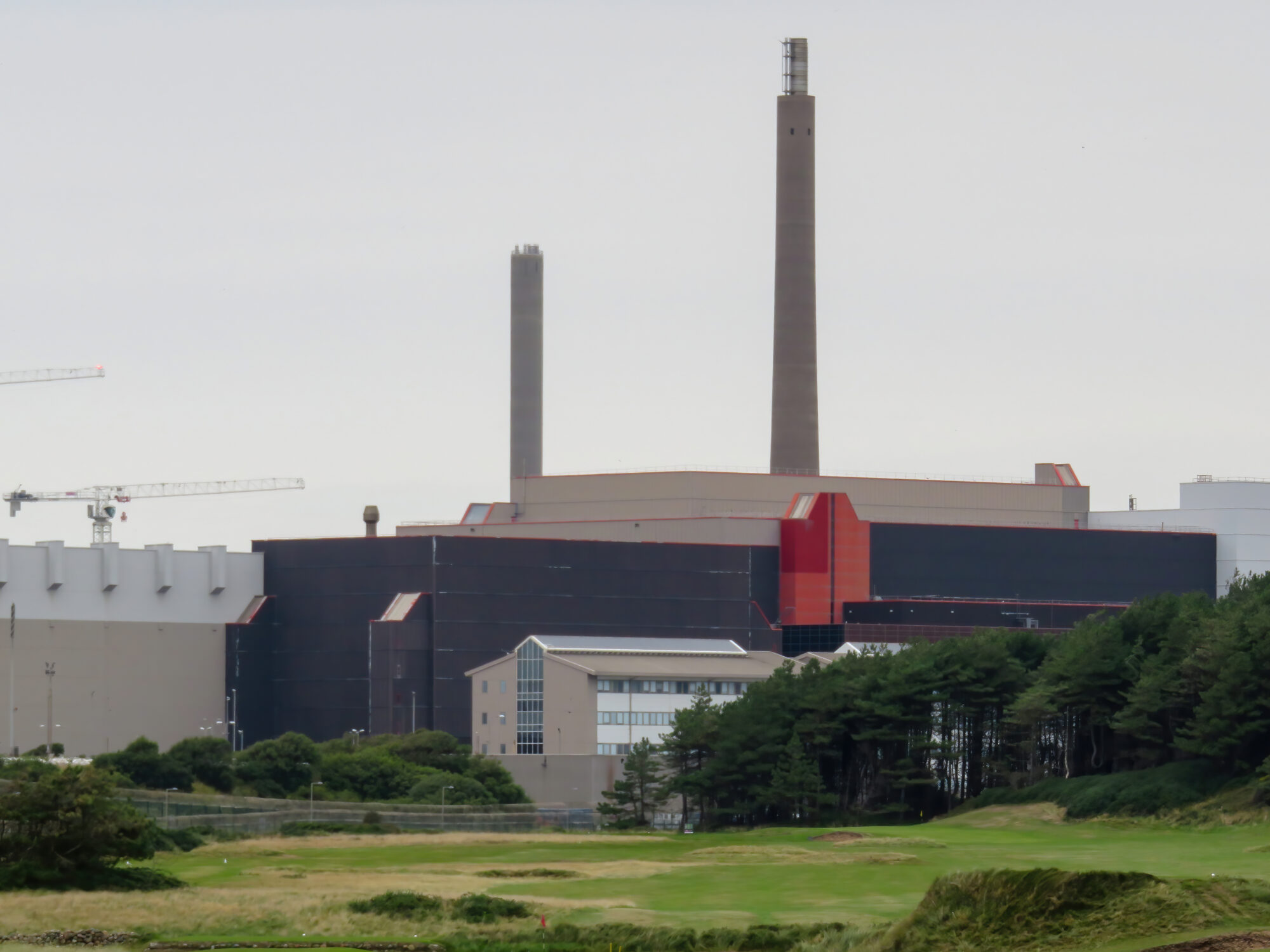History
“Sellafield is a large multi-function nuclear site close to Seascale on the coast of Cumbria, England. As of August 2022, primary activities are nuclear waste processing and storage and nuclear decommissioning. Former activities included nuclear power generation from 1956 to 2003, and nuclear fuel reprocessing from 1952 to 2022. Reprocessing ceased on 17 July 2022, when the Magnox Reprocessing Plant completed its last batch of fuel after 58 years of operation.
The licensed site covers an area of 265 hectares (650 acres), and comprises more than 200 nuclear facilities and more than 1,000 buildings. It is Europe’s largest nuclear site and has the most diverse range of nuclear facilities in the world situated on a single site. The site’s workforce size varies, and before the COVID-19 pandemic was approximately 10,000 people. The UK’s National Nuclear Laboratory has its Central Laboratory and headquarters on the site.
Originally built as a Royal Ordnance Factory in 1942, the site briefly passed into the ownership of Courtaulds for rayon manufacture following WW2, but was re-acquired by the Ministry of Supply in 1947 for the production of plutonium for nuclear weapons which required the construction of the Windscale Piles and the First Generation Reprocessing Plant, and it was re-named “Windscale Works”. Subsequent key developments have included the building of Calder Hall nuclear power station – the world’s first nuclear power station to export electricity on a commercial scale to a public grid, the Magnox fuel reprocessing plant, the prototype Advanced Gas-cooled Reactor (AGR) and the Thermal Oxide Reprocessing Plant (THORP). Decommissioning projects include the Windscale Piles, Calder Hall nuclear power station, and a number of historic reprocessing facilities and waste stores.
The site is owned by the Nuclear Decommissioning Authority (NDA) which is a non-departmental public body of the UK government. Following a period 2008–2016 of management by a private consortium, the site was returned to direct government control by making the Site Management Company, Sellafield Ltd, a subsidiary of the NDA. Decommissioning of legacy facilities, some of which date back to the UK’s first efforts to produce an atomic bomb, is planned for completion by 2120 at a cost of £121 billion. Sellafield was the site in 1957 of one of the world’s worst nuclear incidents. This was the Windscale fire which occurred when uranium metal fuel ignited inside Windscale Pile no.1. Radioactive contamination was released into the environment, which it is now estimated caused around 240 cancers in the long term, with 100 to 240 of these being fatal. The incident was rated 5 out of a possible 7 on the International Nuclear Event Scale.”
Source: https://en.wikipedia.org/wiki/Sellafield










